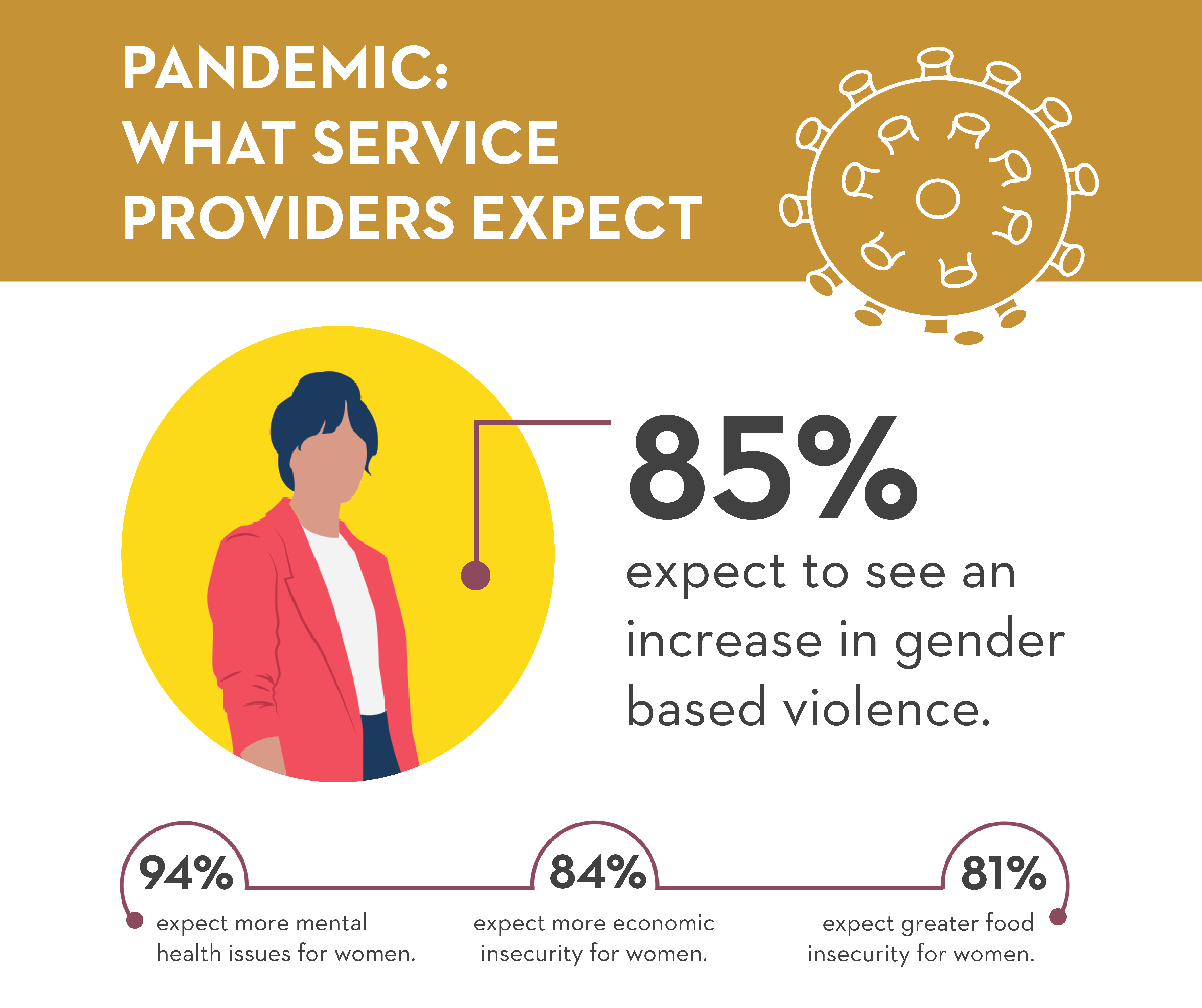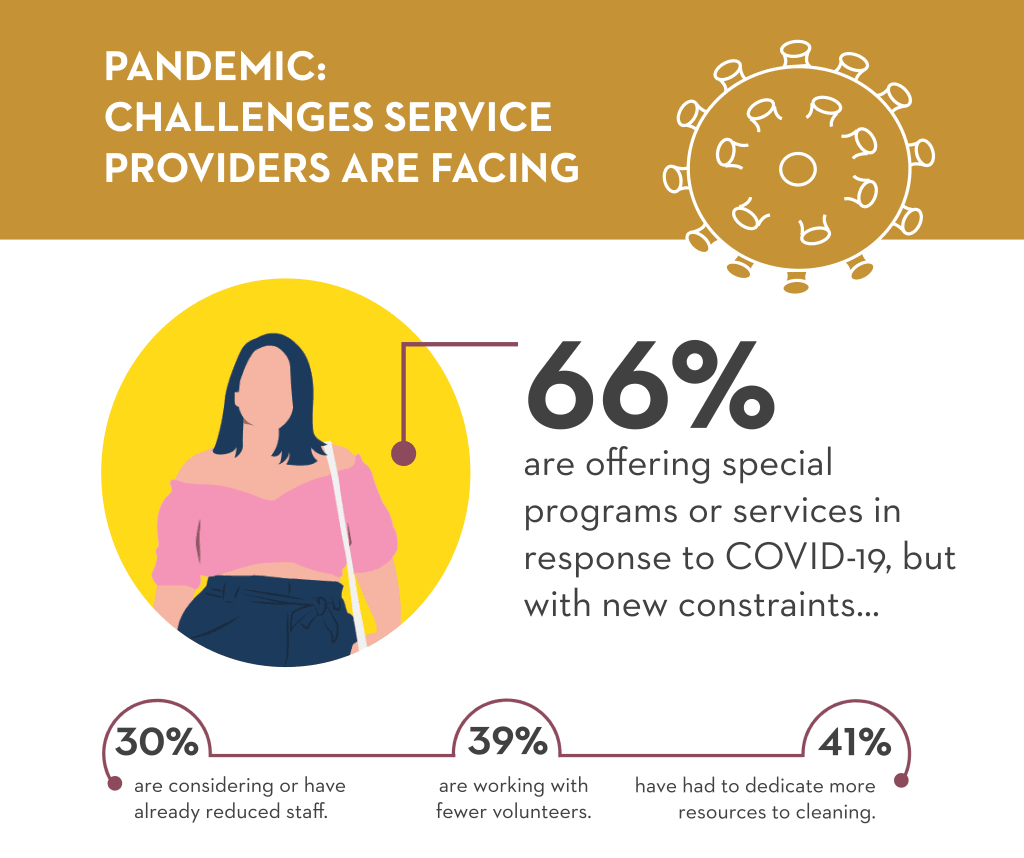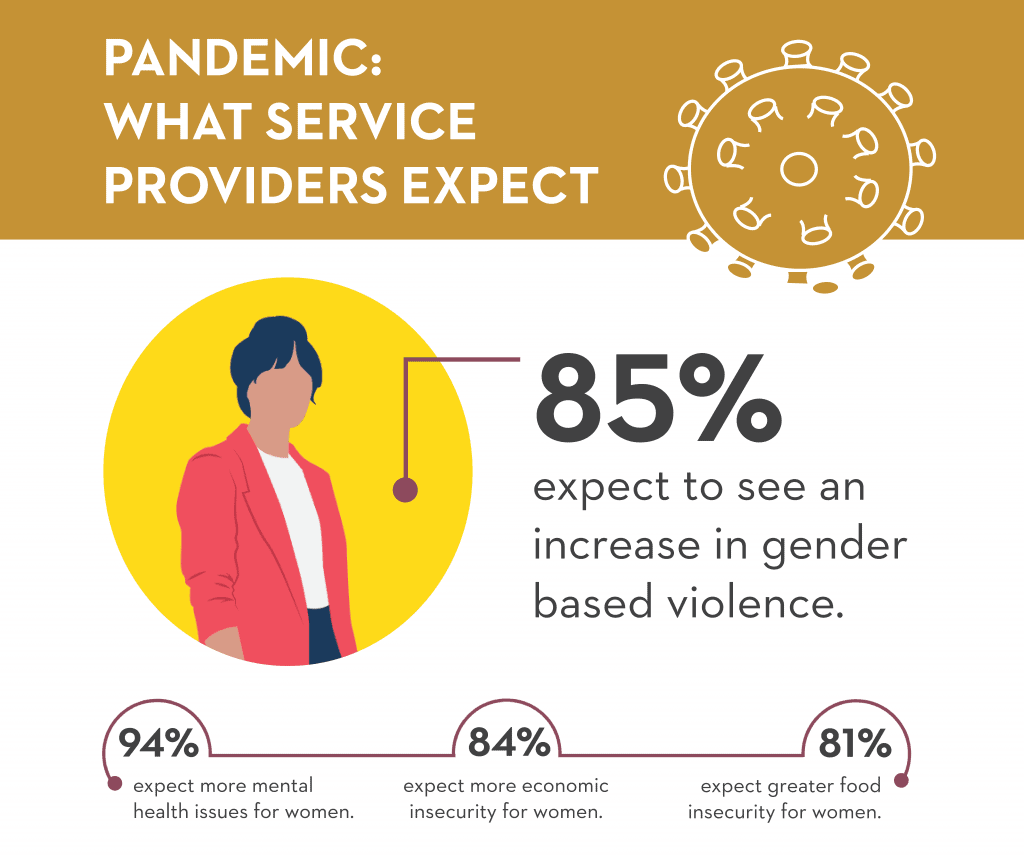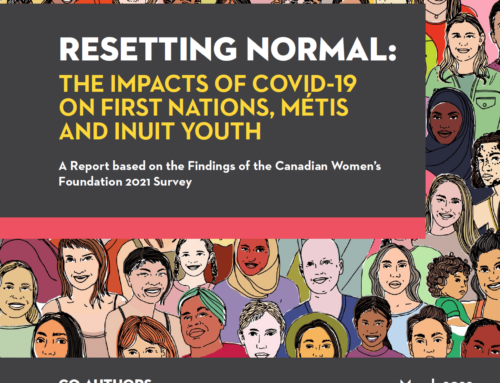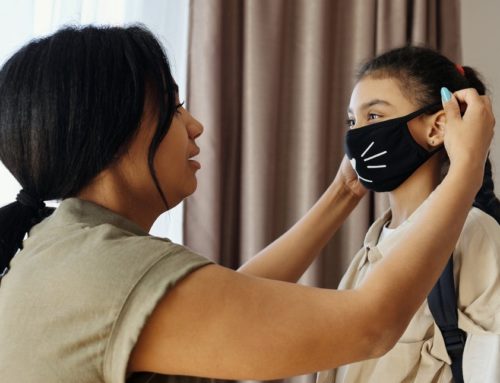As some COVID-19 restrictions are being gradually lifted, there’s cautious optimism that Canada’s efforts to flatten the curve are paying off. Yet, the side-effects of the pandemic will continue to disproportionately impact women.
In March, the Foundation invited service providers who focus on women, girls, trans, and non-binary people to take a survey about the pandemic’s impact. Almost 120 responses came in from throughout the country, revealing the scope of the new challenges and concerns these services and their communities face.
Pandemic-related challenges
Based on 119 responses, we learned that 80 per cent of service providers are concerned about their ability to continue delivering services. While 66% per cent say they’re offering special programs or services in response to COVID-19, they’re doing so with new constraints:
While they struggle to maintain services in these new circumstances, the vast majority of service providers that responded to our survey only expect community challenges to escalate.
The numbers don’t capture the whole reality. In their comments, service providers highlighted how people in their communities may be facing other barriers, including:
• Increased burden of childcare and education on women
• Loss of safe spaces for 2SLGBTQIA+ individuals, particularly youth
• Decreased access to community supports and services
• Increased reliance on substances to cope with added stresses
• Lack of digital resources in the home to support work, education, and access to information about the pandemic
How the Canadian Women’s Foundation is responding
The Foundation has launched the Tireless Together Fund to help ensure that vulnerable women and girls aren’t left behind in the COVID-19 crisis. Your contribution will help critical programs for diverse women, girls, and trans and non-binary people continue through the pandemic.
When you donate to the Tireless Together Fund, you help service providers with:
• staffing and volunteer shortfalls;
• wraparound support (e.g. childcare, food, transit);
• safety supplies (gloves, masks, cleaning supplies);
• operational costs (rent, utilities);
• digitization of services for physical distancing;
• and more …
In many different ways, the Foundation also continues to advocate for government and decision-makers to apply an intersectional feminist lens when it comes to ongoing pandemic recovery efforts. We have recently released the first in a series of reports, called Resetting Normal: Building Gender Equality in the Pandemic Recovery. With your support, we can continue to amplify women’s voices, and work toward a gendered response to the COVID-19 crisis.
Learn more:
The Facts: Women and Pandemics
Women Leaders in COVID-19: Seen and Unseen
Women’s “Worry Work in the COVID-19 Pandemic
The Difficult Economic Side-Effects of COVID-19 for Women
The Gendered Impacts of Coronavirus
